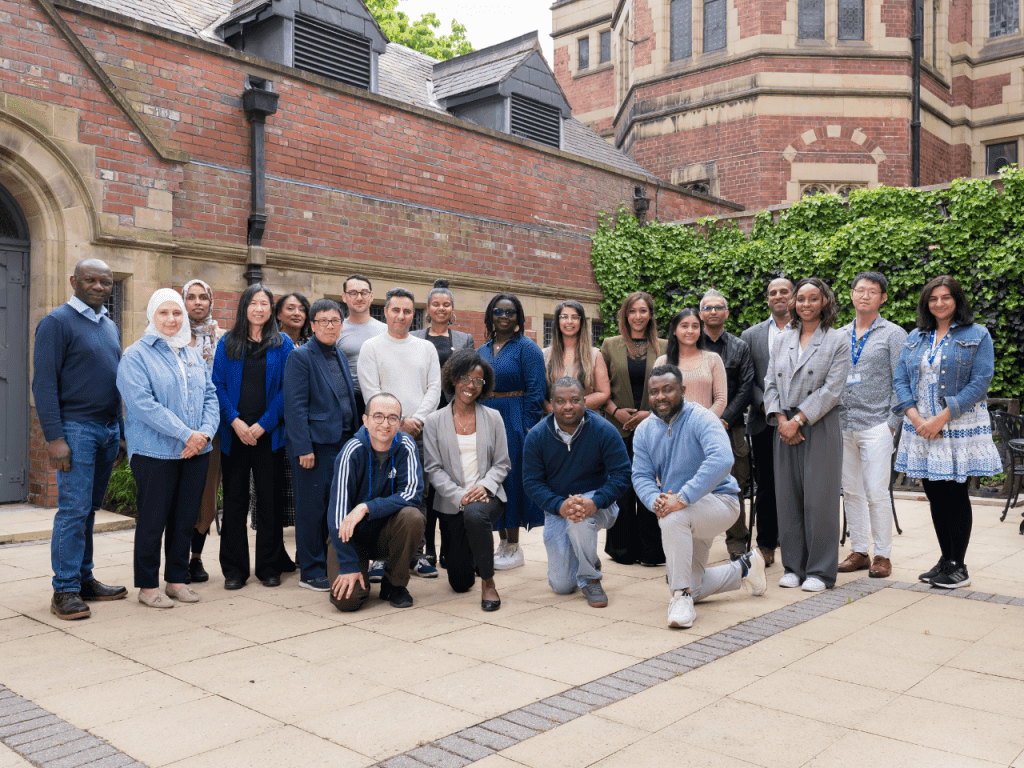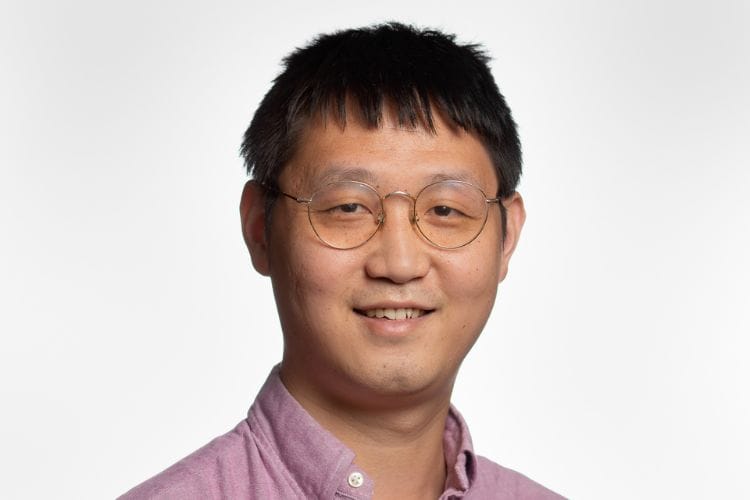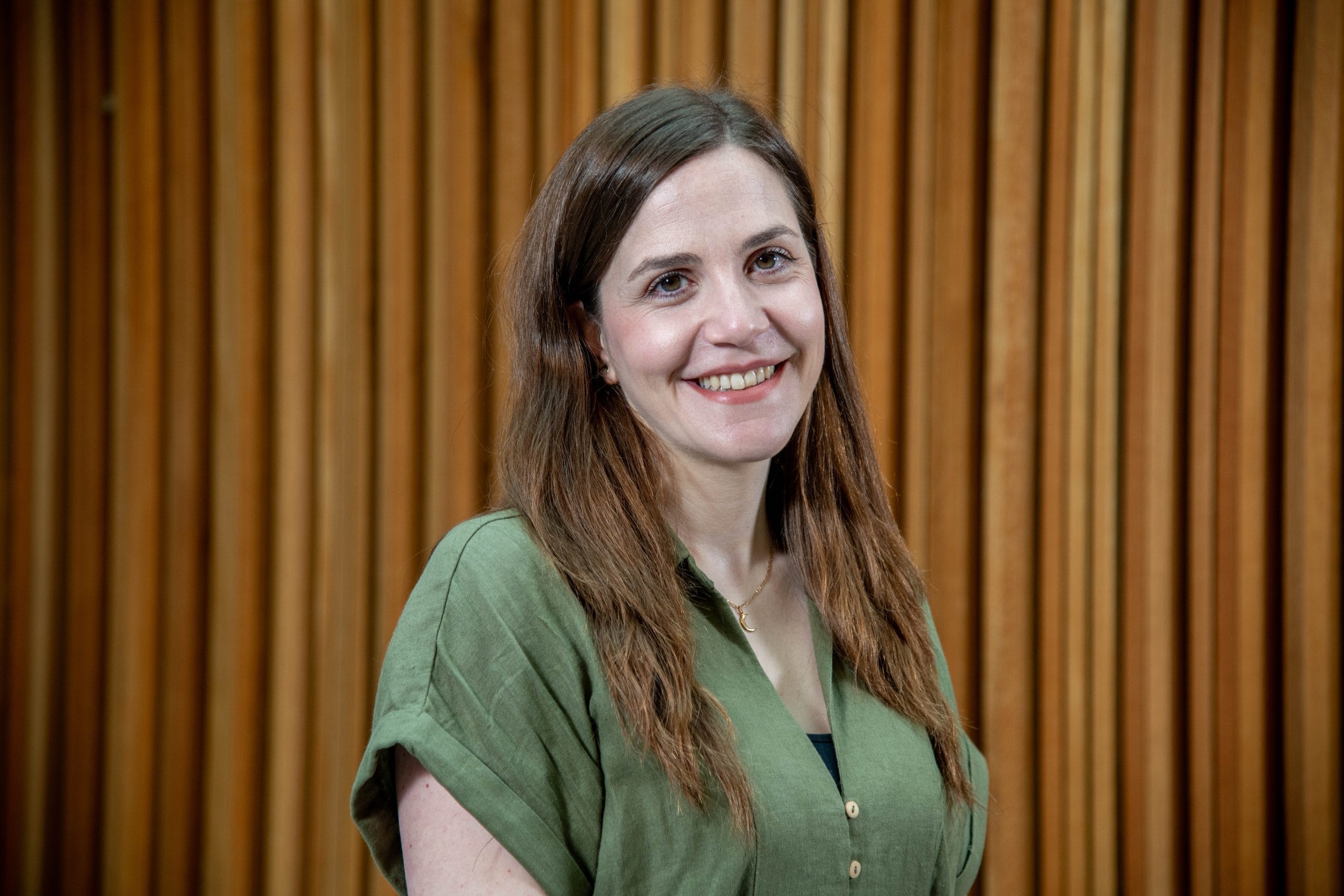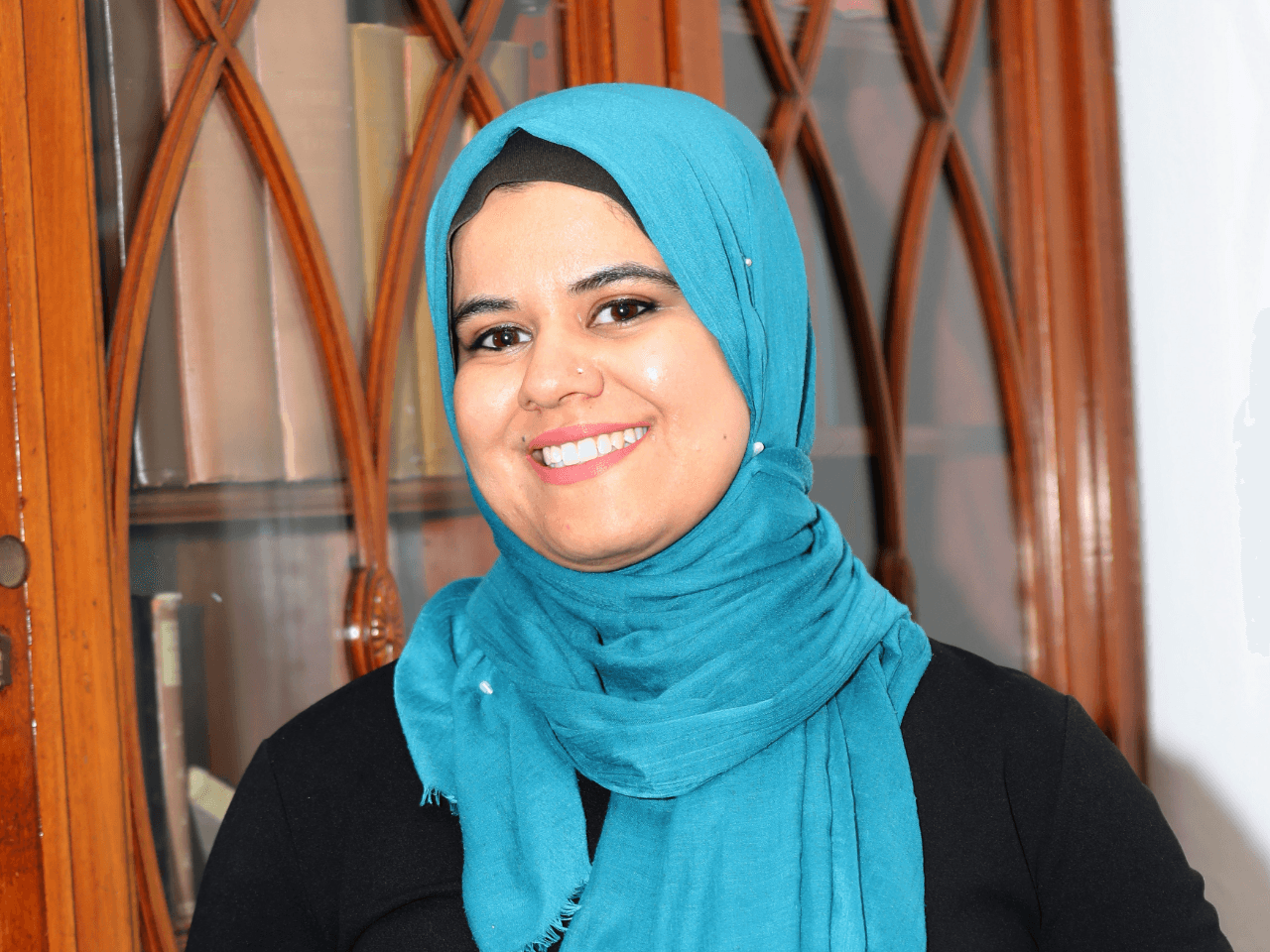Dr Karisha Kimone George is a Lecturer and Project Lead at the University of York’s EDI research centre. She is also a participant in our Equity in Leadership programme which offers targeted leadership development for staff from global majority backgrounds.
We asked Karisha some questions about how she has found the programme so far, her role at the EDI research centre, and why this programme is so beneficial for aspiring leaders.
What attracted you to the Equity in Leadership programme? What did you hope to gain from taking part?
“I think learning how to lead effectively is a difficult skill, but one that is even more complex when one is an ethnic minority. The pressure to be nice and accommodating in order to be seen as a ‘good’ leader often means that you avoid having those hard conversations that are core to leadership. I hoped to learn how to lead given that I had an additional layer of ‘white’ expectations in relation to what this should look like – in other words to lead in a way that was authentic and that did not require me to leave bits of myself behind.
“I truly believe that to fully achieve what I am meant to, I need to be fully who I am – and that felt unwelcome in leadership spaces.”
“I was also attracted by the opportunities to be taught such information in a way that did not try to fill ‘gaps’ within me. So for instance, some programmes focus on the trope that the absence of equity in leadership is because minoritised staff lack skills; these programmes then try to teach you these skills. I think leadership comes naturally to anyone if they are attuned to their strengths and know how to use these to their advantage. This particular programme is strengths-focused and came highly recommended.”
What aspects of the Equity in Leadership programme have you found most beneficial so far?
“I loved the concept of cultural capital! As a psychologist, I knew about social capital, but little fuss is made about cultural capital. I love my weird cultural mix – Trinidadian, Black British (my favourite thing to say is ‘Wha ah gwaan bruv’ – perfect combination of Caribbean and British) – but whenever I bring all of that into a room, I feel so awkward and out of place. The norm in academia remains white, reserved, middle-class – a norm I cannot attain. And so realising that this is a strength was such a relief.
“I have since started all talks with a little anecdote about branching both cultures (e.g. having to spend so much on a sofa – the Trinidad need to celebrate every little victory – that I now must remain seated on said sofa for at least 3 hours a day to get my money’s worth – a sprinkle of self-deprecating British humour), and I relish in sharing this culture with others.”
Have you enjoyed meeting other people from White Rose universities on the programme and visiting different universities?
“I cannot lie – I am a very extreme introvert – and so I avoid all-day engagements if I can. What I have found though is that I look forward to it. I dive head first into the adventure of getting there! I drove to Leeds (nightmare!) and then took the wrong train on my way to Sheffield (that’s me trying to travel before my morning tea!), but wasn’t overwhelmed because I knew what I was in for during the day.
“Lots of laughs and honest conversations, and yummy food – best combination! I have now actually started comparing this experience to other all-day events I get invited to, and they don’t tend to compare.”

Karisha and other participants of the Equity in Leadership programme
You work as project lead at the University of York’s EDI Research Centre. How has taking part in this programme complemented your role at the centre?
“I took on this leadership role without thinking twice about leadership really. I was focused on the change I wanted to make and how the Centre can be core to enabling said change. But I have struggled with leadership within the role. I tend to focus on supporting but in an unproductive way (in the long term). For instance, I often shared the credit for ideas that I came up with alone and I have found that instead of inspiring others to come up with their own (like a thinking bomb), they stopped working as hard to develop their own ideas and establish their own brands. They in fact became more and more unreliable as they knew I would pick up the slack.
“The programme has helped me to realise that part of my motivation for such leadership was an insecurity in standing fully in my ideas and owning them regardless of the outcome. This was related to trespasser syndrome – being worried about others not crediting these ideas because they came from just little old me. It was difficult to change at first, but it has been going well so far. And in owning my ideas, others have now developed a confidence to work independently, and creatively!”
Can you highlight any specific research projects or initiatives from the Centre that you are particularly proud of, and why?
“I am particularly proud of our research-based cultural awareness training programme. The motivation for this was the realisation that a lot of cultural whoopsies come from people not knowing what to do, and trying to manage awkward situations. So within this programme, we are aiming to provide a range of information related to different cultural backgrounds taking a lived experience approach.
“We will be doing this across 5 areas such as microaggressions and cultural differences in work ethic and communication styles. It will be an engaging adventure into all things cultural and a bit historical (linking to for example the colonial root of the term aggressive when used with black females) – and we hope that this awareness goes some way in enhancing the experience of all within the University of York research culture microcosm.”
The programme aims to accelerate career progression for global majority talent in higher education. From a research perspective, what are the most significant systemic barriers that prevent this progression?
I don’t know if you have seen this diagram before – it details the journey of women of colour in an organisation. I first encountered it in an amazing talk given by Professor Bertha Ochieng (one of the few Black female professors in the UK). It is so reminiscent of what we experience as women of colour in academia, and I think it reflects a great deal of what all those from global majority backgrounds experience too.
“Within a project the Centre is completing, we are exploring the experience of academics from minoritised backgrounds working in the EDI spaces within HEI. The findings also align with the image suggesting that these experiences are all too common. They include, for instance, having your competence questioned, being less likely to get jobs with leadership potential, and the inner turmoil of having to cloak your true identity (become institutionalised) if you want to progress, with progression coming with the added consideration of ignoring biased behaviour that you see others enduring (to avoid being seen as problematic).
“We are expected to see any opportunities in a grateful light – with any direct requests for more leadership opportunities termed as ‘ambition’ – a trait that would be seen as positive if one were white. Core barriers that emerge time and time again in the research.”
As someone leading an EDI centre and participating in this leadership programme, what personal challenges or triumphs have you experienced in navigating your own career journey in academia?
“I have one that counts as both – my decision to come back to York. I was here as a student and was not keen – why would I leave the opportunity to teach students from marginalised backgrounds to come back to a white majority student population? It started as a 2 year contract and then got made permanent even before I began so what a range of emotions I experienced as I packed up and left my beloved Birmingham with its blend of black faces and Caribbean accents.
“York has been a challenge because after having an experience of not having to cloak in the workplace (when teaching students who shared my marginalisation), I then had to decide on my new approach: to cloak or not to cloak – that was the question. I started off cloaking but only in a limited capacity – for instance when teaching. However, I was the Wellbeing champion and used my full dialect and uncloaked approach in student emails. I then received a complaint from a staff member that I was undermining students’ employability capacity by making them think it was ok to speak in this way in a professional environment. At that moment, I decided to no longer cloak – at all! Because the impact of my cloaking was that students felt they also had to, and that workplaces felt it was ok to expect staff to do this.
“I bring this up as a challenge mainly because it entailed core considerations of who I wanted to be, which would ultimately impact who I was as a leader. Authenticity has come out as core with the Equity programme thus far, and is the pillar upon which I ensure the Centre is now run. We are a safe space for everyone to bring all of who they are – there is no ‘normal’ box you need to squeeze yourself into.
“A triumph I have experienced is the joyful relationships that I have managed to build. I believe that when we are authentic we free others to do the same – and I have found myself surrounded by authenticity. Academia on the whole remains an unsafe space for those from the global majority, but there are pockets of safety everywhere – and I have been lucky enough to find quite a few who have helped me in my career decisions thus far!”
How do you see the programme contributing to broader cultural shifts regarding leadership diversity?
“I believe the programme can contribute in multiple ways. It is not only about increasing the numbers of academics from the global majority, but increasing the numbers of empowered academics from the global majority.”
“Cultural shifts are hard to generate, particularly in academia where the culture is based on historical power hierarchies dating back to colonial times. This can only happen by placing new persons in positions of power who have the skills, background and degree of personal investment to create said change. I am not saying that these persons will then bear the load by themselves, but that their passion will strengthen existing allyship into an unwavering force for social justice. Such a movement then trickles in influence to the staff and the student population.”
Has the programme had an impact on how you feel about your career journey and plans for the future?
“It most definitely has! I am no longer plagued with concerns about having to weigh up authenticity over institutionalisation in order to be seen as having leadership qualities. There were several points where I was serious about leaving academia, but now I am happily setting up my funeral plot in my office – I will spend the rest of my career here, doing what it takes to make a difference, and empowering others with a passion to do the same. I am not sure where this will take me in terms of leadership – my main concern remains to find myself in a position with the power to make a difference in the lives of as many as possible.”
What message would you like to send to other academics from global majority backgrounds who are aspiring to leadership roles and considering taking part in this programme?
“Start off by spending time with yourself to determine what your passions are. I believe our lives – challenges and triumphs – are aimed at implanting those passions within us (informing our life’s meaning and purpose). After you have an idea of what this may be, then convince yourself that the sky is the limit and go out and get the resources you need to make progress regarding your passion. This programme is one of those resources.
“The reality is that the pathway to success does not readily open for persons from our backgrounds. We need added support and skills and this programme provides these – in enjoyable ways, with enjoyable people and enjoyable food!”
Find out more about the Equity in Leadership programme and our cohorts.
Related news

Spotlight on Leadership: Kalliopi Keramari, a 2024 Equity Programme Delegate

Spotlight on Equity in Leadership: Dr Jihong Zhu

Tackling accent bias: Interview with Dr Gisela Tomé Lourido

Spotlight on Leadership: Dr Maria Hussain, Equity in Leadership 2024 delegate



